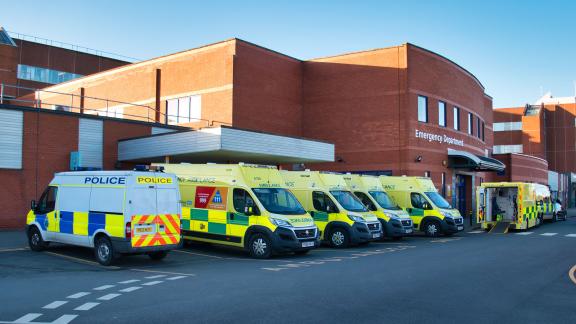NHS Confederation comment ahead of the first ambulance strikes

Speaking ahead of the first ambulance strikes and the second day of the nurses strikes in England next week, Matthew Taylor, chief executive of the NHS Confederation said:
"Health leaders continue to urge Government to enter into meaningful negotiations with trade unions, and for trade unions to ensure that their commitment to protect life and limb is credible and deliverable in the face of the extreme pressures facing all parts of the health service as winter pressures pile up.
“The NHS continues to discuss and agree with union representatives at local levels the specific services where normal staffing levels and arrangements will need to be in place during the ambulance strikes on 21 and 28 December.
“As part of this, health leaders are finalising plans to make sure that people requiring urgent and life-saving care are prioritised, which could see the military, independent and voluntary sectors being called upon to work alongside NHS staff, including community and primary care teams, to support responses. Also, hospitals are reviewing their outpatient appointments and seeing where patients can be discharged safely from hospital to free up beds, and are making use of their virtual wards. This is so that patients in the most critical conditions can be quickly offloaded from ambulances and then safely looked after in emergency departments.
“The arrangements will vary locally, and health leaders are committed to ensuring their communities understand any changes to their services. This is particularly important to note because not all ambulance trusts in England will be experiencing strike activity this month.
“However, the public should still expect ambulance services to be under significant pressure during this wave of industrial action. Ambulances are already seeing increased calls and demand and this will intensify next week. The national advice from NHS England remains that people should continue to call 999 in emergencies and for more minor ailments, to use NHS 111.”



